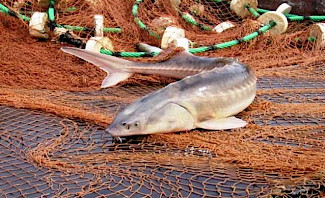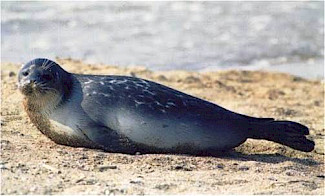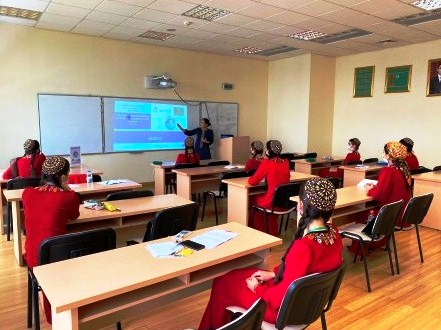 |
|
| 16 DEC 2022 | |
|
*GEOCLIK started in November 2020 and has been implemented in three Turkmen universities: International University for Humanities and Development of Turkmenistan (IUHD), Niyazov Turkmen Agricultural University (TAU), and Magtymguly Turkmen State University (TSU). |
|
|
Turkmen institutional team heads talk on the topics related to project tasks, achieved results, and the prospects of the project sustainability. O. Durdyev (TAU) – The GEOCLIC project involves five EU, three Central Asia countries and Azerbaijan. CA countries particularly need to have specialists for monitoring and managing coastal ecosystems given the region’s vulnerability to natural disasters and climate changing. The goal of the project is the development of new BA, MA, and PhD programs and modernization of the current curricula for training specialists in the field of ecology, management and engineering of coastal zones with competencies to use remote sensing tools and geospatial technologies, GIS Software–ILWIS to assess the state of the environment and manage the obtained data in order to implement improvements. The received developments will help solve the negative consequences of the environmental impact. The project is an opportunity to get closer to solving these problems. - What contributions to improving the ecological situation in the Caspian Sea are expected in case of GEOCLICK successful implementation? Sh. Ashirmuradova (TSU) - The work in the project will support developing curricula targeted at training specialists with competences to use remote sensing tools and geospatial technologies in the field of ecology, management and engineering of the coastal zone. Our students will have opportunities to learn managing the digital image processing, big data analysis, environmental modeling and management, optical and hyperspectral remote sensing data, computer vision algorithms, GIS and other technologies. Implementation of the project tasks will also have effect on the regional aspect, which means that there will be good prospects for cooperation between universities and enterprises in the exchange of knowledge and educational resources, training competitive specialists with analytical and research skills. |
|
 |
 |
|
– How participation in Erasmus+ projects influence on their participants, particularly, on young teachers? O. Durdyev (TAU) – Erasmus+ projects provide opportunities to implement assigned objectives in the shortest possible time, develop professional competences and intercultural communication skills, work together with colleagues from different countries in multinational consortia. Erasmus+ supports young participants to moving their carrier forward. Our young teacher Govshut Shadurdyyev is one of such optimistic examples and active participant in both projects NICOPA and GEOCLIC. Govshut expressed a wish to gain deeper knowledge in GIS technologies and Engineering for monitoring water bodies and entered the Master program at the Kazakh-German University in the field of “Integrated Water Resources Management”. Sh. Ashirmuradova (TSU) – In 2021 academic year, our student Diyar Yhtiyarov took part in the contest organised by the Academy of Sciences of Turkmenistan, and he was awarded for his research paper "Researching conditions of mudflows origination and ways of their rational use". In 2022 academic year, TSU students specializing in ecology worked on their research papers for the Contest of young scientists in Turkmenistan on the topics: “The importance of digital mapping and remote monitoring in increasing the productivity of cultivated lands”, “Secondary waste treatment for biogas production”, “Flower decoration of urban spaces and its importance in the development of eco-culture”. |
|
 |
|
|
At present, all Central Asia countries demonstrate high interest and unanimity in a wide range of areas. The practical work initiated in recent years in the five-sided format already proves the enormous potential of joint efforts and close interaction. The "green" projects of the Erasmus+ Program make a great contribution to the well-being of the region, and their sustainable results serve the interests of Central Asia states and peoples. |
|
| *GEOCLIK - New courses on geospatial engineering for climate change adaptation of coastal ecosystems | |
| <<< | |